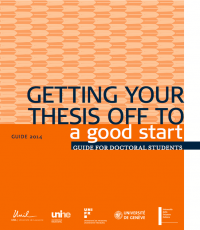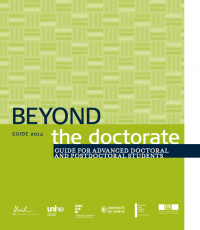Although women have been gaining ground at LIVES, particularly as doctoral candidates, women remain underrepresented in the upper echelons of academia. This observation corroborates the results of larger-scale surveys undertaken at Swiss universities, particularly the University of Geneva and the University of Lausanne.
During the funding period by the Swiss national science foundation, support for women's careers has been a priority at LIVES, which put forward and implemented several measures for supporting equality:
- Ensure that recruitment complies with the Equality Directives and the Action Plans adopted by LIVES' host universities, (Lausanne and Geneva).
- Provide all senior employees the opportunity to participate in equality awareness workshops.
- Encourage female employees (both junior and senior) to participate in at least one of the women's career promotion programmes available at the universities they are affiliated with.
- Include training on gender issues within the activities of the LIVES doctoral programme.
As of 2023, these issues have been taken up by the UNIL and UNIGE Equality Offices.
Promotion of equality starts with the doctorate. In 2011, 73 percent of LIVES doctoral candidates were women. However, women represent only 38 percent of the NCCR's advanced researchers.
As beginning researchers, women doctoral candidates are the first to benefit from measures implemented by the universities to enhance the development of their academic career. There are many measures for assisting doctoral candidates along their way.
The various equality offices in academia are implementing a large number of programmes to promote equality and support the next generation of women.
- Mentoring network of French-speaking Switzerland: for women finishing their doctorate or recently hired for academic and/or scientific posts in French-speaking Switzerland.
- REGARD workshops: continuous training workshops for women in academia and at the University of applied sciences in French-speaking Switzerland.
- Dual Career Couples: for couples where both partners have university degrees or equivalent, and wish to pursue an academic career at a Swiss university.
- “Tremplin” grants/subsidies (UNIL, UNIGE): for doctoral candidates who are completing their thesis, post-doctoral candidates, lecturers and instructors who do not have tenure and are aiming for an academic career. The candidates must hold a paid position at a Swiss university).
- Mentoring the next generation of academics: For women who are doctoral candidates or associate teaching staff and/or post-doctoral candidates at the University of Geneva. The doctoral candidates must have begun their dissertation at least two years previously.
- PROWD (PROfessional Women with Doctorates) : provides women at UNIL who obtained a PhD a support for academic and non-academic careers.
More information on the doctoral and post-doctoral programs, academic careers and their alternatives, etc., is also available at the Portal for young academics.
LIVES collaborates with the equal opportunity offices at the University of Lausanne and the University of Geneva to offer its employees of both sexes a number of measures to support parenting, and information and the means to better reconcile work and family life:
- Maternity/paternity leave: What does the law say? At the University of Lausanne and the University of Geneva.
- The equality offices offer two guides containing valuable information on reconciling family life and work at the University of Geneva and the University of Lausanne.
- Various forms of childcare (daycare center, kindergarten, etc.) at the University of Lausanne and the University of Geneva.
- Subsidies and financial aid for parents (UNIL): Upon request, the Office of Equal Opportunity at the University of Lausanne can grant special financial assistance based on certain allotment criteria.
- In addition, the LIVES Center advocates a flexible organization of work and meetings (meeting times, home working, vacation calendar). These best practices are meant to prevent employees from having to justify their desire to maintain a balance between work and family. This measure is also intended to combat the stereotypes associated with parenting, and the stigmatization of parents, while creating a work environment more conducive to a balance between employment and private life.
The SNSF offers flexibility grants aimed at PhD students and postdoctoral researchers who need to look after children. The applicants are employed in a NCCR, they are pursuing an academic career and are the main carer (as of 50%) of their children until the beginning of their compulsory education (incl. compulsory Kindergarden). For more information, see the intranet.
For more information: https://www.unil.ch/egalite/en/home.html
IMPORTANT LINKS
-
EO at the University of applied sciences and arts western Switzerland
-
EO at the University of applied sciences and arts northwestern Switzerland
For parents
Guides for PhD students and postdocs
With the help of the federal program for equal opportunity for women and men, the equality offices of the Swiss universities (BULA) offer two very useful guides for doctoral candidates and for postdocs.
Toolkit
Texts, videos and other resources regarding the integration of gender issues in research.
Conflict management policy
The LIVES Centre encourages anyone involved in a difficult work or study situation to try to use dialog and mediation to arrive at a solution before the conflict escalates. LIVES conflict management policy.



